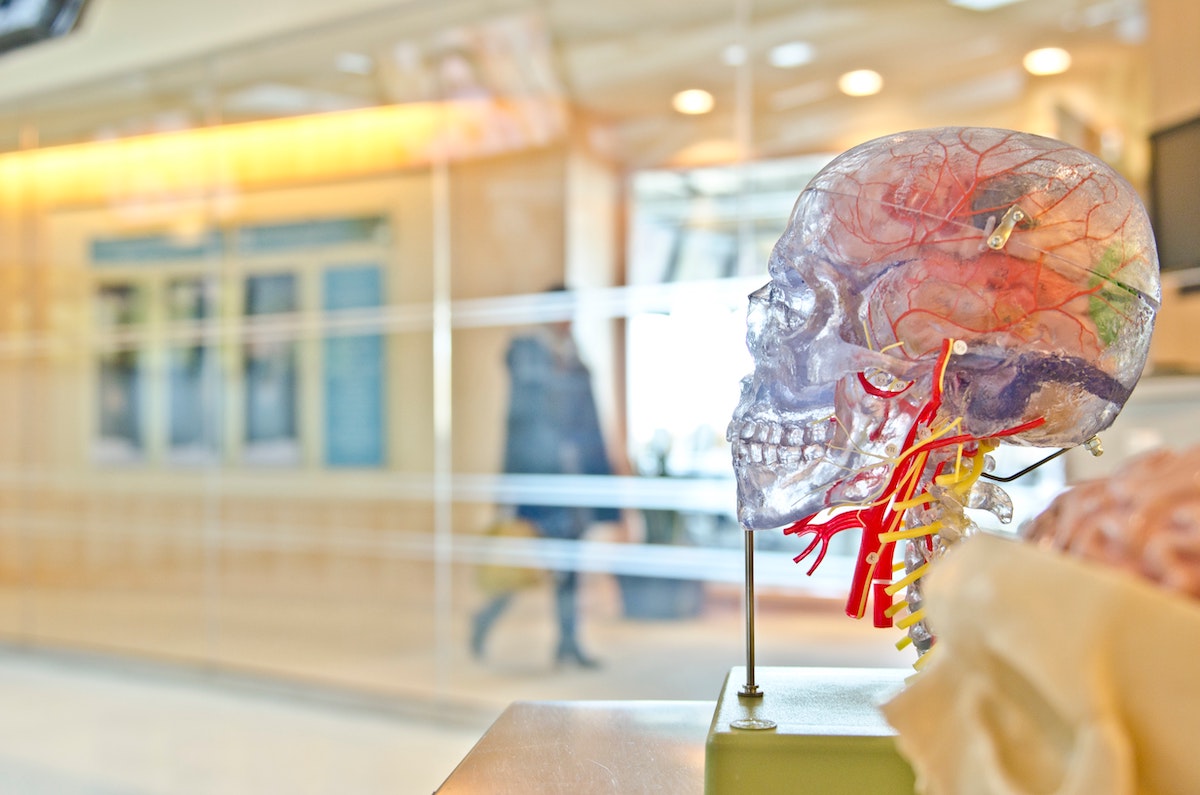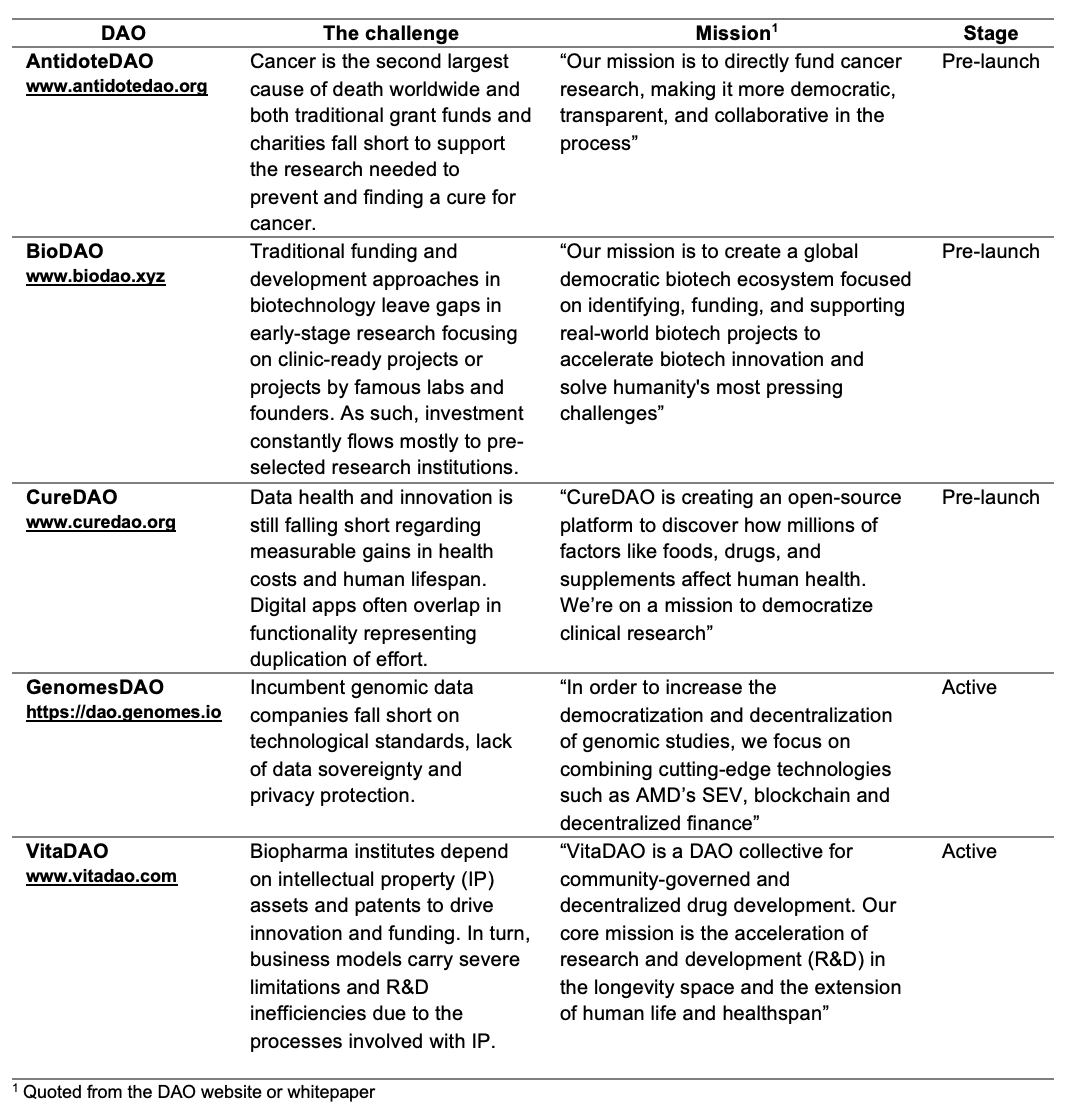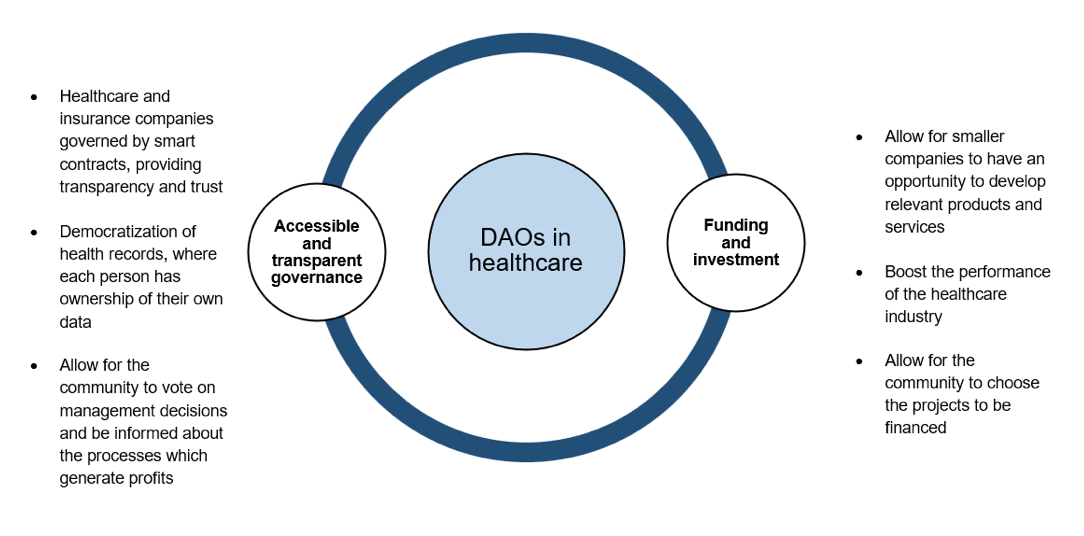California Management Review
California Management Review is a premier professional management journal for practitioners published at UC Berkeley Haas School of Business.
Sara Mateus and Soumodip Sarkar

Image Credit | Jesse Orrico
Healthcare is rapidly advancing in terms of technological uptake, representing one of the largest segments of artificial intelligence (AI) applications (Amante, 2022; Garbuio and Lin, 2019). Together with modern biotechnology for healthcare applications, ‘smart’ healthcare makes use of technologies such as Internet of Things (IoT), wearable devices, cloud computing, big data, 5G, microelectronics, and AI (Tian et al., 2019). These applications play important roles in monitoring and disease prevention, diagnosis and treatment, hospital management, health decision making, and medical research (Tian et al., 2019). The evolution of smart healthcare has allowed for the implementation of surgical robots, intelligent diagnostic support systems and data management systems, telemedicine, among many other tools (Garbuio and Lin, 2019).
“The Boon and Bane of Blockchain: Getting the Governance Right” by Curtis Goldsby & Marvin Hanisch. (Vol. 64/3) 2022.
“Designing Governance Mechanisms in Platform Ecosystems: Addressing the Paradox of Openness through Blockchain Technology” by Jessica Schmeiss, Katharina Hoelzle, & Robin P. G. Tech. (Vol. 62/1) 2019.
Despite all these advances, the processes of accessing health, paying for it, and interacting with medical professionals have largely remain unchanged. Being bounded by old access and governance rules has prompted a lack of trust, and promoted access inequalities (Blanchette, 2022). This may change in the future though, owing to increased adoption of blockchain applications. One such application is decentralized autonomous organizations (DAOs), whereby healthcare actors such as patients, health institutions and doctors, researchers and insurance companies may participate as members of the DAO (Wang et al., 2018), increasing trust between actors and promoting transparency.
DAOs are blockchain-based organizations of decentralized and autonomous management, which do not involve central control and hierarchies. DAOs are fed by a network of contributors (investors in cryptocurrencies) and operate on automated rules encoded in computer programs, also called ‘smart contracts’. As such, their governance is automated and based on a combination of on-chain (machine consensus) and off-chain (voting rights) mechanisms, which in turn support community decision-making and drive distributed trust among peers. All transaction records and administration rules are registered and maintained in the blockchain (Liu et al., 2021; Santana and Albareda, 2022; Wang et al., 2018).
The first step on creating a DAO is the publication of a proposal, which is elaborated by the founders in a seminal document, the “DAO whitepaper”. This document presents the original concept of the project, along with other data such as technical, organizational, and investing information. The founders also make the code of blockchain and smart contract available to promote collaboration with other interested developers (Arruñada and Garicano, 2018; DuPont, 2017; Santana and Albareda, 2022). Then, the initial financial stage starts through initial coin offerings (ICO). Cryptocurrency holders that invest in DAOs become members and receive DAO tokens which translate into rights in the organization such as voting and discussing of proposals (Santana and Albareda, 2022). At the end of the financing stage, the DAO starts running.
Although early DAO projects failed due to hacking, this hasn’t stopped new DAOs from being created. As of November 2022, over 200 DAOs, involving different fields such as finance, art, gaming and solidarity, are operating according to the DeepDAO database, and over 9000 are in pre-launching stages. Usually, each DAO has a specific goal and focuses on different challenges. Examples include Decentraland: a virtual world governed by a DAO on which members can build their own environments and communities and which is becoming popular among brands such as Coca Cola and Adidas aiming at reaching out digital-native audiences (Marr, 2022; Santana and Albareda, 2022). One case is that of Pleasr, constituted by a collective of artists and art lovers that invest in digital artwork through a DAO, in which members agree on the pieces they believe represent important ideas and causes, and each member owns share of the growing collection (Marr, 2022). DAOs have current and future applications in different fields such as finance, data management, business, and we argue, in healthcare.
The Healthcare sector involves a range of actors such healthcare providers, medical device and other technologies’ manufacturing companies, pharmaceutical and biotechnological research and development industries (Boss, 2022) and managing agents. The possibilities of incorporating DAOs in the field are numerous. These can especially contribute to increased access, both for patients and for smaller research and manufacturing institutions, and to increase transparency and community participation in the often monopolistic and opaque governance and management of the sector.
To the best of our knowledge, most healthcare DAOs are still in pre-launch stage and are mainly related to funding and supporting medical and biotechnological research. In this section, we summarize some of these DAOs that are emerging now in the healthcare space. AntidoteDAO is in the pre-launch stage and aims at directly funding cancer research, allowing to decrease the time and effort researchers spent on applying for traditionally funded grants and making the process more transparent, democratic, and collaborative. VitaDAO is an already operational DAO which is focused on funding longevity research and drug development projects while promoting open science principles, reducing funding decisions lifecycles, and democratizing ownership. As of 2022, VitaDAO has over 1300 token holders and has allocated over $3 million to research projects. BioDAO aims at supporting and funding early-stage biotechnology projects and decentralized drug development. BioDAO will initially focus on funding and developing therapeutics and applications based on AI and machine learning, while it will later expand into diagnostics and biotech applications. In table 1, you can find these and other examples of DAOs in the healthcare field.
Table 1 – Examples of DAOs in the healthcare field

Although we have given a few examples, the use of DAOs in healthcare is still incipient and focused on funding research. As such, although these DAOs are related to healthcare field, DAOs in access and healthcare management are still to come. The potential of blockchain applications in healthcare has already been recognized. Blockchain allows for decentralization, improved data security and privacy, health data ownership, data availability and robustness, transparency and trust, and data verifiability (Agbo et al., 2019; Goldsby and Hanisch, 2022; Schmeiss et al., 2019). The most common current application of blockchain in healthcare is the management electronic medical records. Other applications include the detection of prescription drug fraud and the facilitation of remote patient monitoring (Agbo et al., 2019).
DAOs are a logical next step in the journey of applying blockchain technology to increase efficiency and transparency of healthcare systems. DAOs could, for instance, replace traditional healthcare insurance companies. If so, claims could be settled instantly once the predefined conditions of the smart contracts are triggered (Wang et al., 2018), reducing frauds and mistakes as well as costs. DAOs can also bring healthcare into the emergent ‘metaverse’, i.e. a virtual environment which merges the physical and digital world, resorting to Web and extended reality technologies (Lee et al., 2021). This could contribute to reducing barriers in the traditional health systems, such as cost, inconvenience, discomfort, and lack of holistic support while also promoting healthier lifestyles through gamification (Blanchette, 2022). DAOs can also play a role on pandemic management and prevention (Amante, 2022). Moreover, DAOs may play an important role on democratizing health records, providing simple methods for patients to allow or restrain external access to their data. This could contribute to ameliorating data-based research which can in turn accelerate the discovery of new diagnosis and treatments. The current healthcare industry in most countries, is of a monopolistic nature, and therefore DAOs could contribute to increased accessibility to resources. In another perspective, the healthcare sector profits remaining high, and management decisions such as executives’ bonuses are often non-transparent (Boss, 2022). With DAOs, the agency costs would decrease due to the absence of a managerial board and the community-based decisions would allow for increased transparency and trust (Boss, 2022). In figure 1, we provide a summary of opportunities for DAOs in healthcare, based on two pillars – (1) accessible and transparent governance, (2) funding and investment. Being healthcare is a highly regulated field aligned with the still embryonic state of DAOs, we guess there is still a long way to go before we have healthcare institutions governed by DAOs. Nevertheless, the potential is real, and we believe we will continue to hear about these progresses.

Figure 1 - Opportunities for DAOs in the healthcare field
Agbo, C. C., Mahmoud, Q. H., & Eklund, J. M. (2019). Blockchain technology in healthcare: a systematic review. Healthcare 7(2), 56
Amante, D. (2022, May 13). DAOs Are the Future of Healthcare. The Yuan. Retrieved August 5, 2022, from https://www.the-yuan.com/300/DAOs-Are-the-Future-of-Healthcare.html.
Arruñada, B., & Garicano, L. (2018). Blockchain: The birth of decentralized governance. Pompeu Fabra University, Economics and Business Working Paper Series, 1608.
Blanchette, H. (2022, June 9). Decentralized autonomous organizations: Health care in the metaverse. Retrieved August 5, 2022, from https://insurancenewsnet.com/innarticle/decentralized-autonomous-organizations-health-care-in-the-metaverse
Boss, S. (2022). DAOs and the future of governance (Master’s thesis). Nijmegen School of Management, The Netherlands
DuPont, Q. (2017). Experiments in algorithmic governance: A history and ethnography of “The DAO,” a failed decentralized autonomous organization. In Bitcoin and beyond (pp. 157-177). Routledge.
Garbuio, M., & Lin, N. (2019). Artificial intelligence as a growth engine for health care startups: Emerging business models. California Management Review, 61(2), 59-83.
Goldsby, C., & Hanisch, M. (2022). The Boon and Bane of Blockchain: Getting the Governance Right. California Management Review, 64(3), 141-168.
Lee, L. H., Braud, T., Zhou, P., Wang, L., Xu, D., Lin, Z., … & Hui, P. (2021). All one needs to know about metaverse: A complete survey on technological singularity, virtual ecosystem, and research agenda. arXiv.2110.05352
Liu, L., Zhou, S., Huang, H., & Zheng, Z. (2021). From technology to society: An overview of blockchain-based DAO. IEEE Open Journal of the Computer Society, 2, 204-215.
Marr, B. (2022, July 11). The best examples of DAOs everyone should know about. Forbes. Retrieved August 5, 2022, from https://www.forbes.com/sites/bernardmarr/2022/05/25/the-best-examples-of-daos-everyone-should-know-about/?sh=4ef91d4c40c3
Santana, C., & Albareda, L. (2022). Blockchain and the emergence of Decentralized Autonomous Organizations (DAOs): An integrative model and research agenda. Technological Forecasting and Social Change, 182, 121806.
Schmeiss, J., Hoelzle, K., & Tech, R. P. (2019). Designing governance mechanisms in platform ecosystems: Addressing the paradox of openness through blockchain technology. California Management Review, 62(1), 121-143.
Tian, S., Yang, W., Le Grange, J. M., Wang, P., Huang, W., & Ye, Z. (2019). Smart healthcare: making medical care more intelligent. Global Health Journal, 3(3), 62-65.
Wang, S., Wang, J., Wang, X., Qiu, T., Yuan, Y., Ouyang, L., … & Wang, F. Y. (2018). Blockchain-powered parallel healthcare systems based on the ACP approach. IEEE Transactions on Computational Social Systems, 5(4), 942-950.
 Spotlight
Sayan Chatterjee
Spotlight
Sayan Chatterjee
 Spotlight
Mohammad Rajib Uddin et al.
Spotlight
Mohammad Rajib Uddin et al.